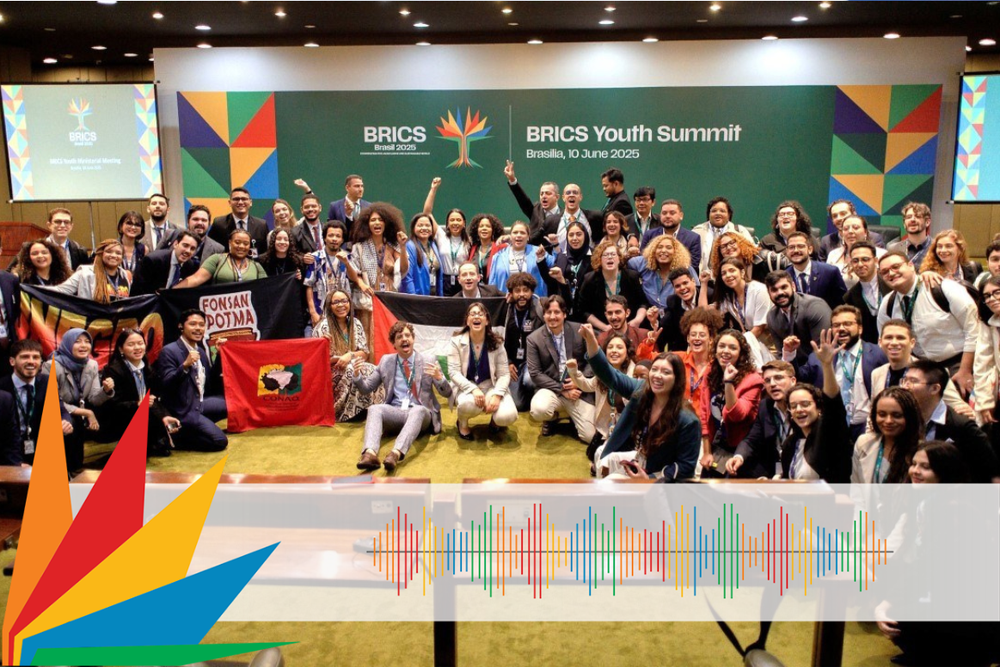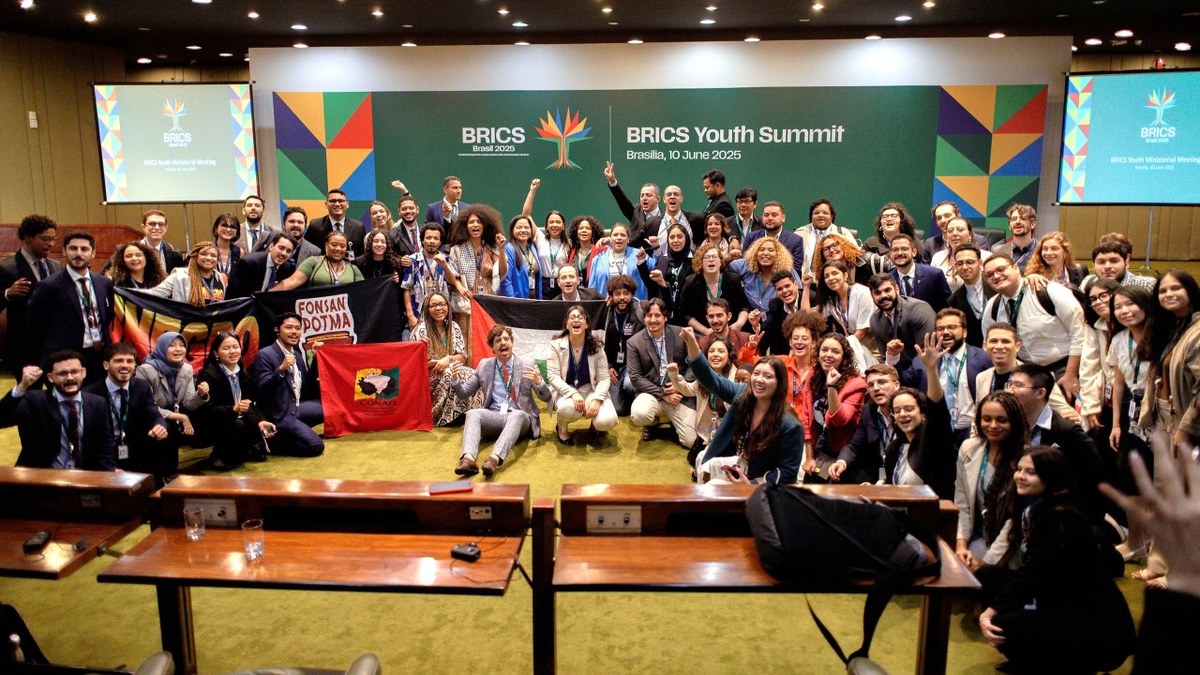BRICS Brasil Bulletin #15 - In one of the year’s largest gatherings, BRICS youth advances on cooperation
At the Summit, young delegates signed a Memorandum with the participation of both member and partner countries, proposing a geopolitical approach that embraces generational inclusion. The Memorandum reaffirmed a shared agenda focused on sovereignty, diversity, and innovation. Listen to the full report here.

Report: Franciéli Barcellos de Moraes / BRICS Brasil
Voice-over: Laura Carrasco Frederico
Reporter: Youth from across the Global South are making one thing clear: being present is not enough—they want to be heard. At the 11th BRICS Youth Summit, held this week at the Itamaraty Palace in Brasilia, a number of calls for genuine participation in decision-making processes echoed in multiple languages, urging that youth be included not only in discussions on sports, culture, and diversity but in the full range of issues shaping our global future.
According to Ronald Sorriso, National Youth Secretary at the Office of the Presidency, the renewal of multilateralism requires more than structural reforms such as strengthening BRICS—it demands generational transformation.
Ronald Sorriso: We in the Global South hold the largest share of young people on the planet in absolute terms. That means the future of this world must be built—starting now—at the hands of young people, especially those from the Global South. BRICS represents these nations, and through its inventiveness, creativity, and nonconformism, it can offer a new lens through which to view the world.
Reporter: As a result of this integration, BRICS member States signed a “Memorandum of Understanding on Cooperation in Youth-Related Affairs”. It promotes climate action, strengthens cooperation networks, and encourages active youth participation in public policymaking.
Debora John, a representative from Nigeria’s Federal Ministry of Youth Development, emphasized the importance of challenging the notion that governance is a space belonging to older generations only.
Debora John: The youth are the future. It is important that government look inward. It is important that youth take up challenges and also show interest because a lot of youth don't want to join governance. They feel governance are meant for older people and the youth have a great role in participating and such so the youth should be able encourage themselves to do it and we as representatives from different countries we have that sole responsibility of pushing that agenda.
Reporter: Nitesh Mishra, from India’s Ministry of Youth Affairs and Sports, echoed that sentiment. He underscored the fact that young people want to be where the future is being decided—and to take part in those decisions.
Nitesh Mishra: The youth are the ones who will set the future. So when we talk about Global South, youth realizes that the Global South faces the same problem and it is the youth who will give the same solution to all the problems which the Global South is facing. India formally forms the policies for Global South, all the development process which is needed for Global South and we on all platforms talk about Global South and how we can cooperate with each other.
Reporter: From creativity to defiance, youth from the Global South are showing they are ready—not to be seen as symbols, but to be recognized as agents of transformation.
English version by: Judas Tadeu de Azevedo Neto (POET/UFC)
Proofreading by: Enora Lessinger (POET/UFC)
